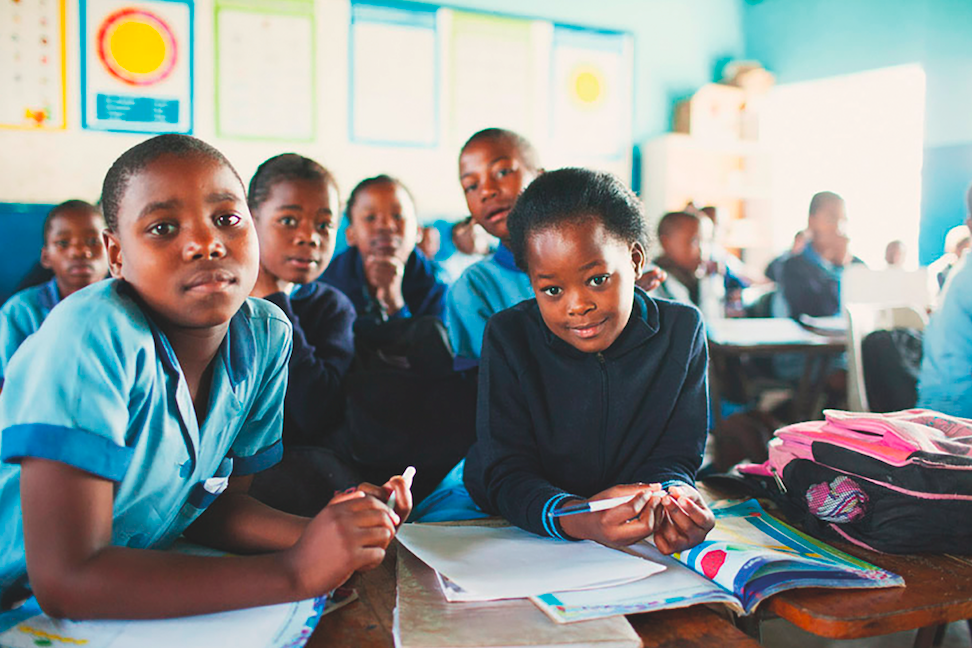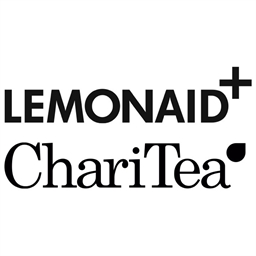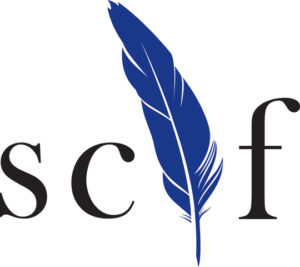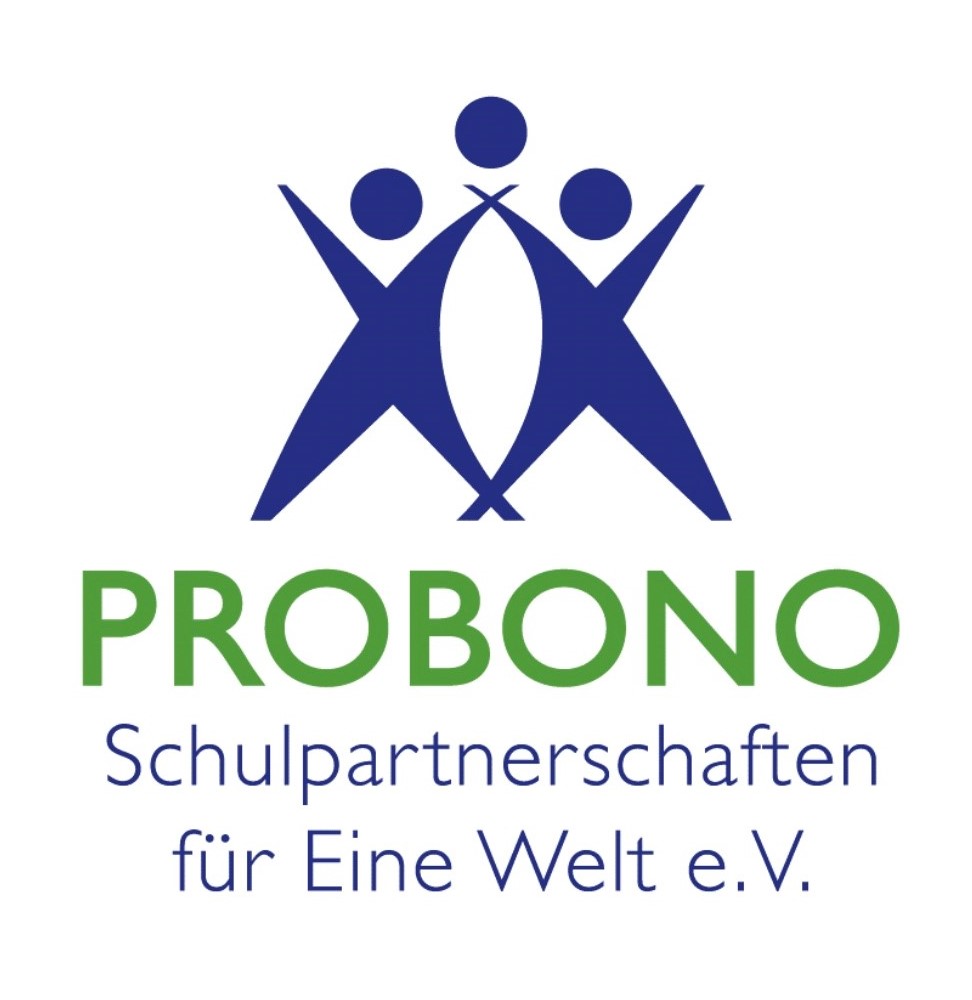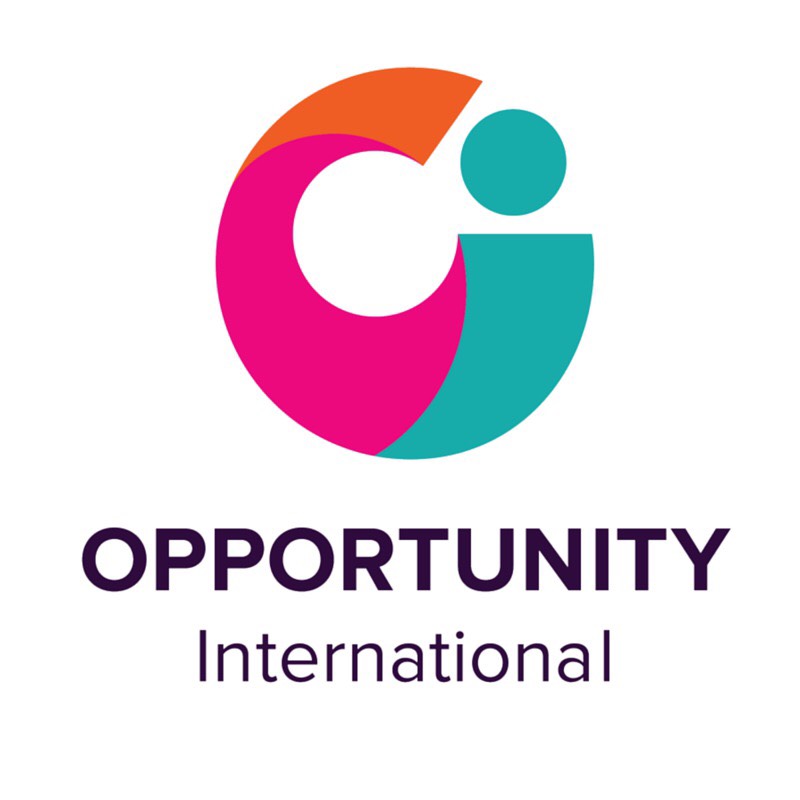Uganda
Teach A Man To Fish has been working with young people in Uganda since 2014. Together we strive to reverse growing youth unemployment and low learning outcomes from formal education.
Our programmes ignite skills in young people, giving them the tools they need for success at school and beyond. We make sure that the most marginalised young people can benefit equally from our programmes.
Through partnership and funding we have been able to work closely with young people and their teachers in schools across Uganda. We have introduced our School Enterprise Challenge into schools in Mpigi, Namutumba, Kassanda, Arua and Dokolo districts. With Education Cannot Wait, we have also been working in schools in four refugee-hosting districts.
The School Enterprise Challenge has transformed education for thousands of young Ugandans. We are determined to reach more young people in more districts in Uganda and create deeper impact for all our participants and their communities.
In Arua, Yumbe and Terego districts we are introducing an enhanced School Enterprise Challenge programme into 60 secondary schools over 3 years. 4,000 students will build their skills in a real enterprise in school and they will start savings clubs. We will set up an alumni network extending the support participants enjoy. Outstanding students will receive additional training and guidance to set up their own individual enterprises and a Savings and Loans Club to finance these.
This enhanced programme draws on our Youth Enterprise Challenge, in which we worked with some 4500 youth in farmer groups in Mityana. Collaborating with Opportunity International, Hanns R Neumann Stiftung and Opportunity Bank Uganda Ltd, the project supported youth to plan, set up and run a group business. 750 outstanding youth received additional support to set up individual businesses. Their efforts increased their families' income and created jobs in their local communities.
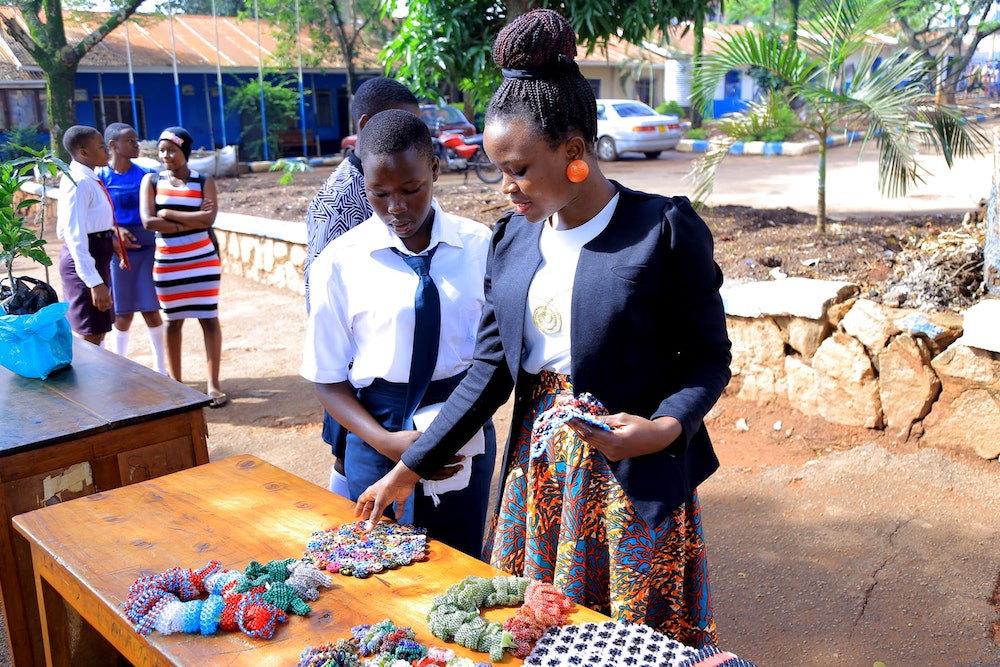

Inspiring Stories: Trevor
Trevor is a smart young man who, at just 14 years, dreams of becoming a lawyer. We are so proud that the School Enterprise Challenge is helping him overcome the challenges that stand in his way.
Trevor started at Kibuuka Secondary School in Mpigi in 2023, after graduating from Mpambire UMEA Primary School. His primary teacher helped him to secure a half-bursary towards his secondary school fees, but it is his own efforts that are keeping him in school.
Trevor is the second child in a family of seven. Unfortunately his father decided to stop paying his children's school fees but Trevor, determined to continue his education, has found a way to pay his own school fees.
At primary school Trevor joined the School Enterprise Challenge business team, producing and selling liquid soap and Vaseline. Quickly, he started to use the knowledge he gained in the School business to launch his own business at home making liquid soap.
Trevor collects discarded plastic bottles and washes them. He then makes a large batch of liquid soap every two weeks and sells it charging 1,000UGX (£0.20) for a small half-litre bottle and 10,000UGX (£2) for a five-litre bottle.
In the first round of sales he made 28,500UGX (£6) profit in just 2 weeks. In the second round he made a profit of 68,000UGX (£14.60), and by round 6 his profits had tripled and he was making 90,000 UGX (£19.00) in just two weeks.
Trevor earns enough money from his business to pay his school fees and buy school books and is determined to finish secondary school, go to University and become a lawyer.
He says that being part of the School-business taught him the technical skills to make soap and the skills for marketing his products. He says he learnt how to communicate well with customers, how to lead a team and how to keep accurate records of costs and income in a business. He has shared his knowledge with his mother. She is extremely proud of Trevor, his knowledge and his determination, which turned a family crisis into an opportunity for them both.
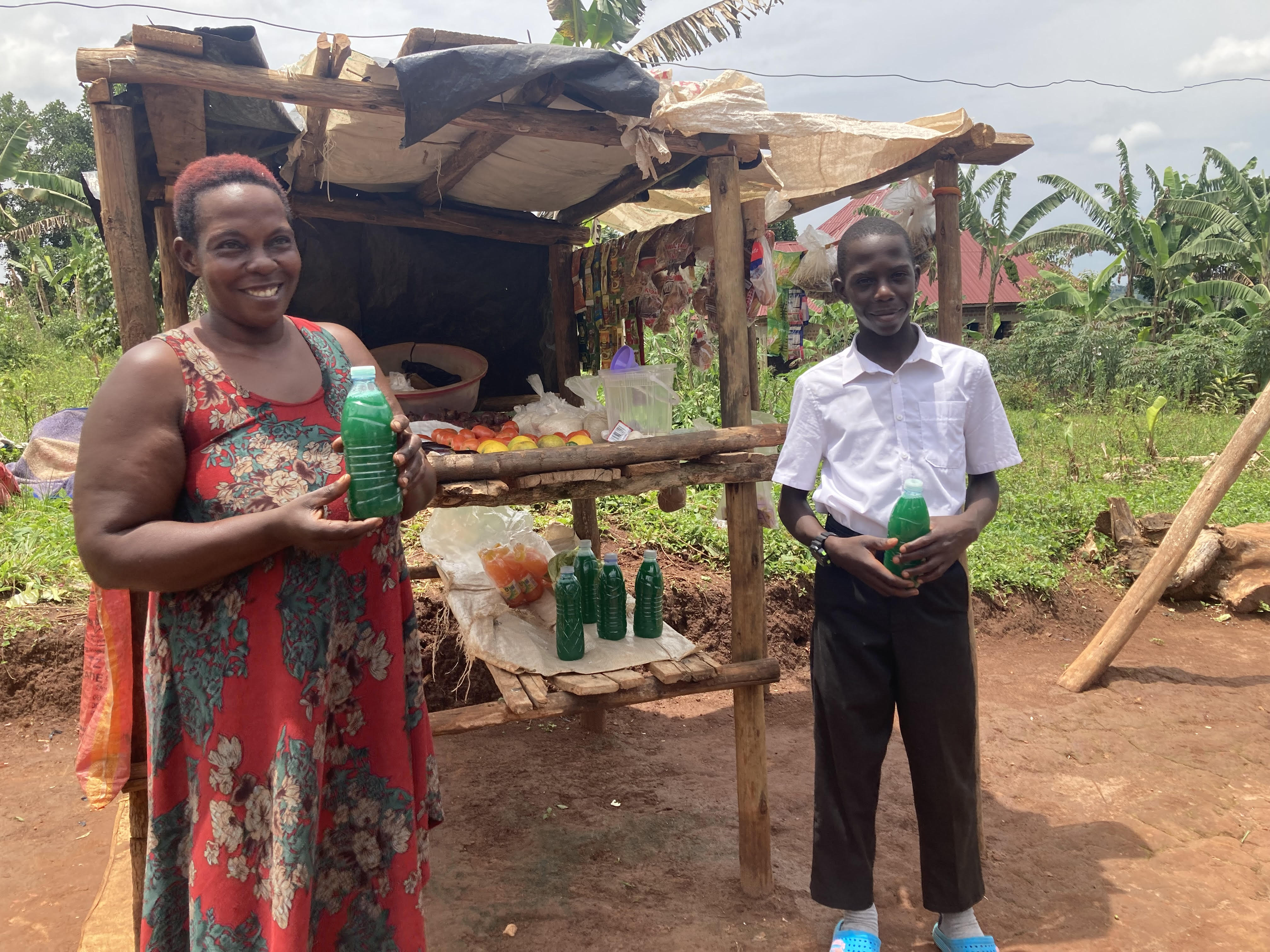
South Africa
We work to help combat educational inequality in South Africa, and launched our School Enterprise Challenge programme here in 2014. Since that time we have supported over 5,000 young people across South Africa to gain vital life skills, business knowledge and practical entrepreneurship experience.
In 2023, we embarked on a new and exciting partnerships with the Department of Basic Education (DBE) and Ecubed (E3). DBE-E3 is developing South Africa's national strategy to introduce entrepreneurship education into all government schools. Together, we are introducing the School Enterprise Challenge into their model schools across the country, starting with schools in Kwa Zulu Natal and Gauteng provinces.
Over 90% of learners in the School Enterprise Challenge showed an increase in all life skills measured (teamwork, problem-solving, presenting and leadership) and, on average, achieved an Advanced skill level across all four skills areas over the year. This is a remarkable achievement given the extent of the learning loss wrought by Covid.
In 2024-25, we are delighted to be introducing the School Enterprise Challenge into 10 DBE-E3 schools in Mpumalanga province. The province is known as the Energy Hub of South Africa and is leading the transition of the energy industry in South Africa away from coal power plants towards renewable technologies. The project, which is supported by The Danish Embassy in South Africa, promotes entrepreneurship as a viable livelihood option for young people, taking advantage of economic opportunities presented by the Just Energy Transition.

"Learning must not be a spectator sport. We must take opportunities for our learners to take action in their learning. This programme does this." Mr M Shangazse
Rwanda
From 2013 to March 2017 Teach A Man To Fish was a partner in implementing the Rwandan Education Advancement Project (REAP), led by Health Poverty Action. With DfID support, 28 schools in Nyaraguru district in Southern Rwanda were supported to start and run sustainable School Businesses. These businesses support girls' education.
Also in 2016 Teach A Man To Fish launched our flagship School Enterprise Challenge programme in Rwanda thanks to support from the Lemonaid + ChariTea Foundation, Social Capital Foundation, Czarnikow, St. Mary’s Church Charities Committee and Fiecon. Several years later, 69% of the school businesses that were set up at the time were still running, generating a much-needed additional income for these rural schools and their students.
In 2020, we adapted the School Enterprise Challenge to launch out-of-school Business Clubs, reaching children and young people in spite of school closures due to the COVID-19 pandemic. The projects allowed young people in marginalised communities to gain essential life and business skills through the planning and implementation of businesses outside of school.
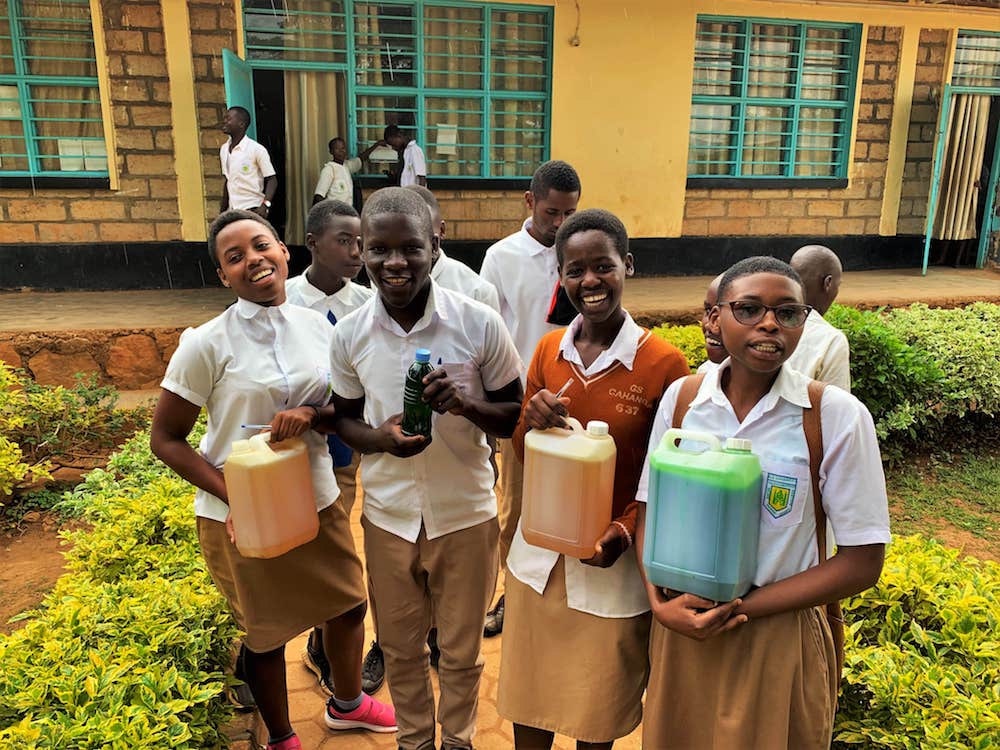
Inspiring Stories: Diane
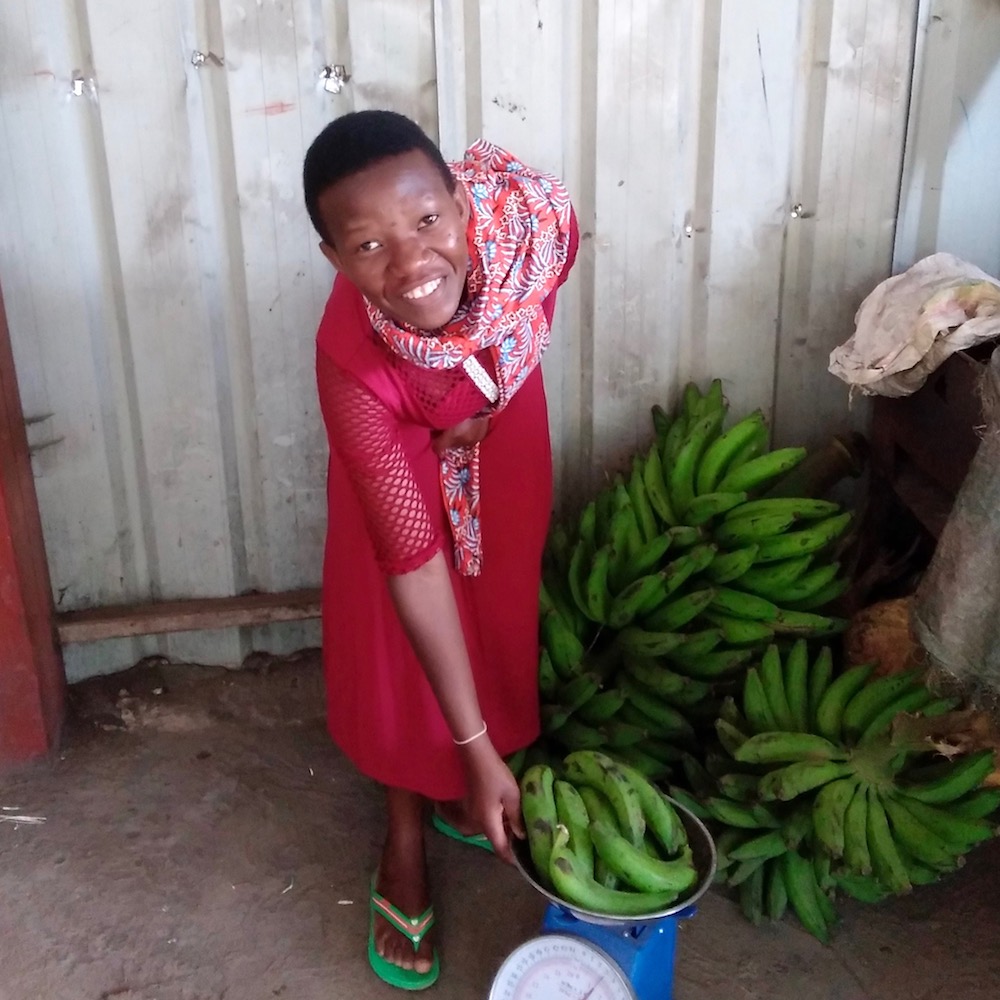
"I was always dreaming about being a businesswoman! To join a business club helped me to achieve my dreams and strengthen me. It helped me know how to create my own business when I finish school by doing a feasibility study with the low resources we have available to us."
Diane is a 19 year old student at a Technical and Vocational Education and Training Centre in Rwanda. In August 2020, she joined the business club 'Everything is Possible Club' as a cashier selling bananas.
Diane has really taken on the motto of her business' name, and has great ambitions for the future: "I plan to have a company in the future that will produce goods. I want to do research on how bananas can be stored for a longer time, and then my company will be able to create new and innovative products."
Kenya
In 2018, we worked with local partners to support 15 schools in Kenya to set up, run and develop sustainable School Businesses directly benefiting more than 2,000 young people.
Our partnerships allowed low-resource schools both in rural and urban settings to participate in the School Enterprise Challenge and learn valuable skills to combat youth unemployment in their countries.
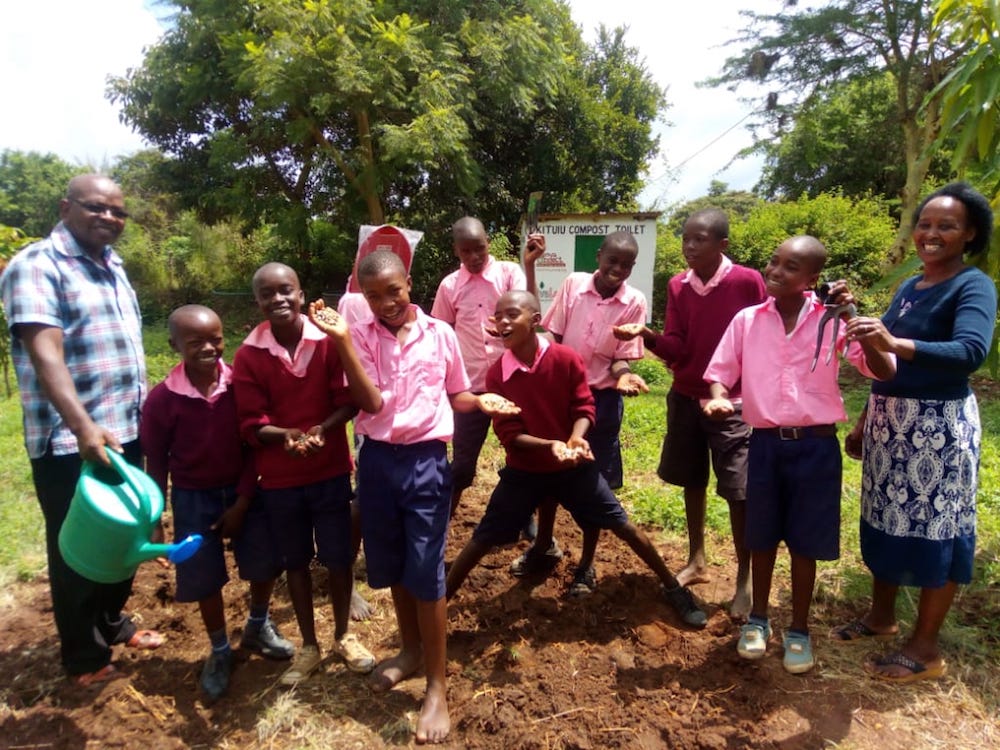
Tanzania
Teach A Man To Fish is partnering with PRO BONO School Partnerships for One World to introduce the School Enterprise Challenge into twelve partner schools in the Moshi and Dar Es Salaam regions of Tanzania in a three-year project.
School-businesses started in the programme are a learning platform for students, helping them to develop practical and essential life skills as well as business knowledge and experience. We have trained 23 teachers to facilitate 544 students in planning, launching and running real and profitable businesses which include a hair salon, liquid soap production, crafts and a student microfinance bank.
The profits generated by the School-businesses can be used to develop the school, offset the costs of providing education and also support vulnerable students with school fees and educational materials.
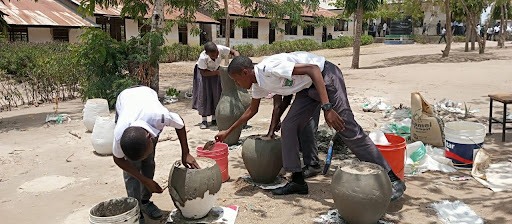
Senegal
Our partnership with Resolute Mining which started with a pilot project in 2021-22, continued in 2023-24. It aims to improve education quality in 5 schools (3 primary and 2 secondary) in the vicinity of their Mako Gold mine, Senegal and strengthen the schools' finances. The communities around the mines are mainly rural and have high levels of poverty. Teach A Man To Fish trained and supported Resolute’s community team in Senegal to introduce the School Enterprise Challenge into these schools.
All the 5 schools have developed a real business through the projects, managed by 20 teachers and 178 students. In the pilot project, their businesses generated a grand total of 409,350 CFA (GBP 526) in just 2 and a half months. In 2023-24, businesses generated nearly double that amount and a grand total of 714,200 CFA (GBP 918) over 2 and a half months.
This income, over a school year, even maintained at this same level, would cover all the costs of schooling 68 young people. This is significant as many young people from these communities are forced to leave school early for financial reasons.
Dialla Cissokho a teacher at Sina Keita (Mako) primary school which started a business rearing and selling poultry (right) told us:
"Our students have gained valuable business knowledge and are eager to learn more. All 30 students on the business team improved their creativity and initiative and girls take on management roles. Grades have improved too as students are now focused on theory AND practice"


Inspiring Stories: Shammah Children Centre in Nairobi's Kibera Slum
Located in Nairobi's Kibera slum - considered the largest slum in Africa - lies Shammah Children Centre, an informal school set up in response to the lack of public schools in the region. With no government funding, the centre suffers from a high student-to-teacher ratio and lacks good quality education resources.
Determined to generate income for their school and improve the livelihoods of students, a group of teachers and students at the Centre joined theSchool Enterprise Challenge and set up their own poultry and rabbit rearing businesses, as well as a vegetable garden.
In their first nine months of operation the school business team, known as the Shammah Shakers, earned a $1,200 profit and involved over 100 parents in the businesses creating a community-wide impact!
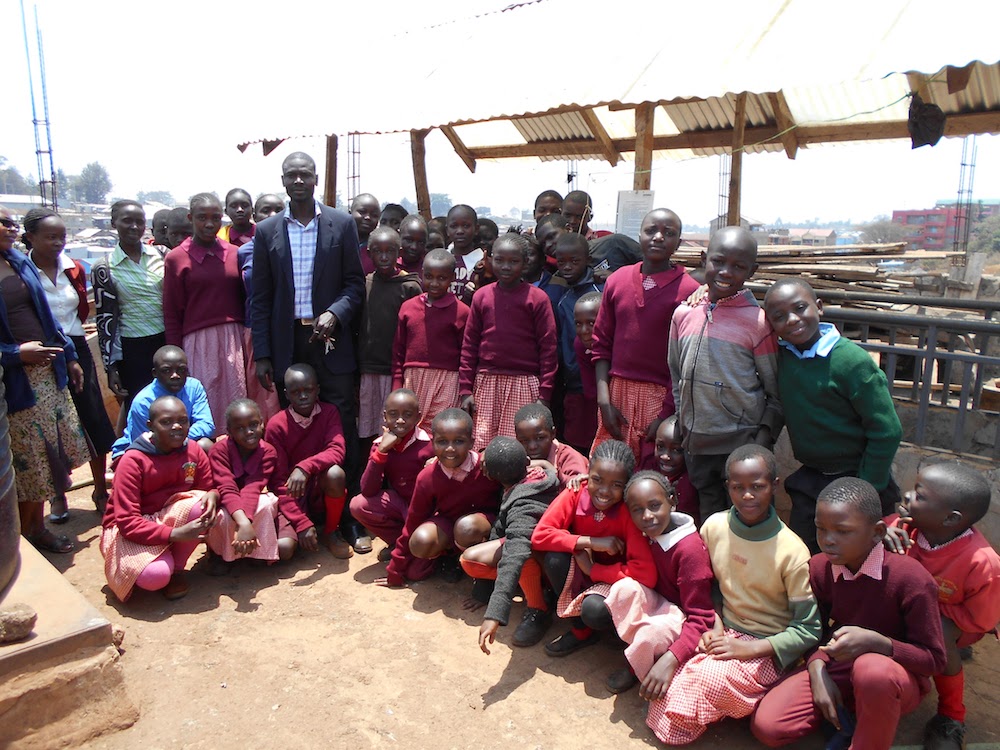
Our supporters in Africa
Trash to Cash Challenge
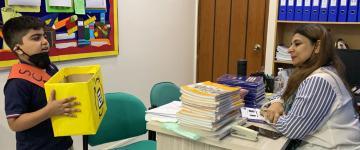
Remove waste from the environment, repurpose it and sell it
School Enterprise Challenge
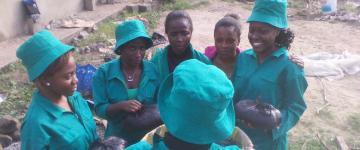
Our student-led business awards programme for schools around the world
Asia

Find out about our impact in Asia
Enterprise Adventure
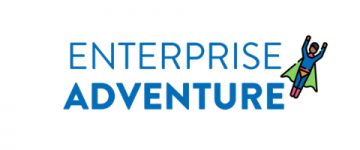
The Enterprise Adventure is a mobile app aimed at teenagers around the world who want to learn about business.
Latin America
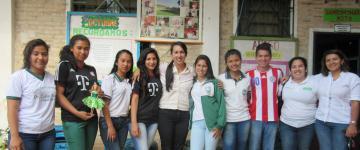
Learn about our work in Latin America
Enterprise Programme for UK teenagers

Out-of-school initiatives
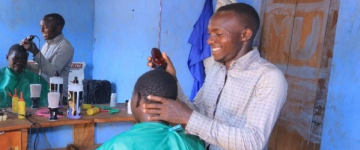
We have created out-of-school business clubs and work with youth groups to support young people’s skills development outside of school settings.
Early Years Enterprise Challenge

Working with Scilla Edmonds a hugely-experienced Early Years teacher we are introducing our new Early Years Challenge to Pre-primary schools in Durban
